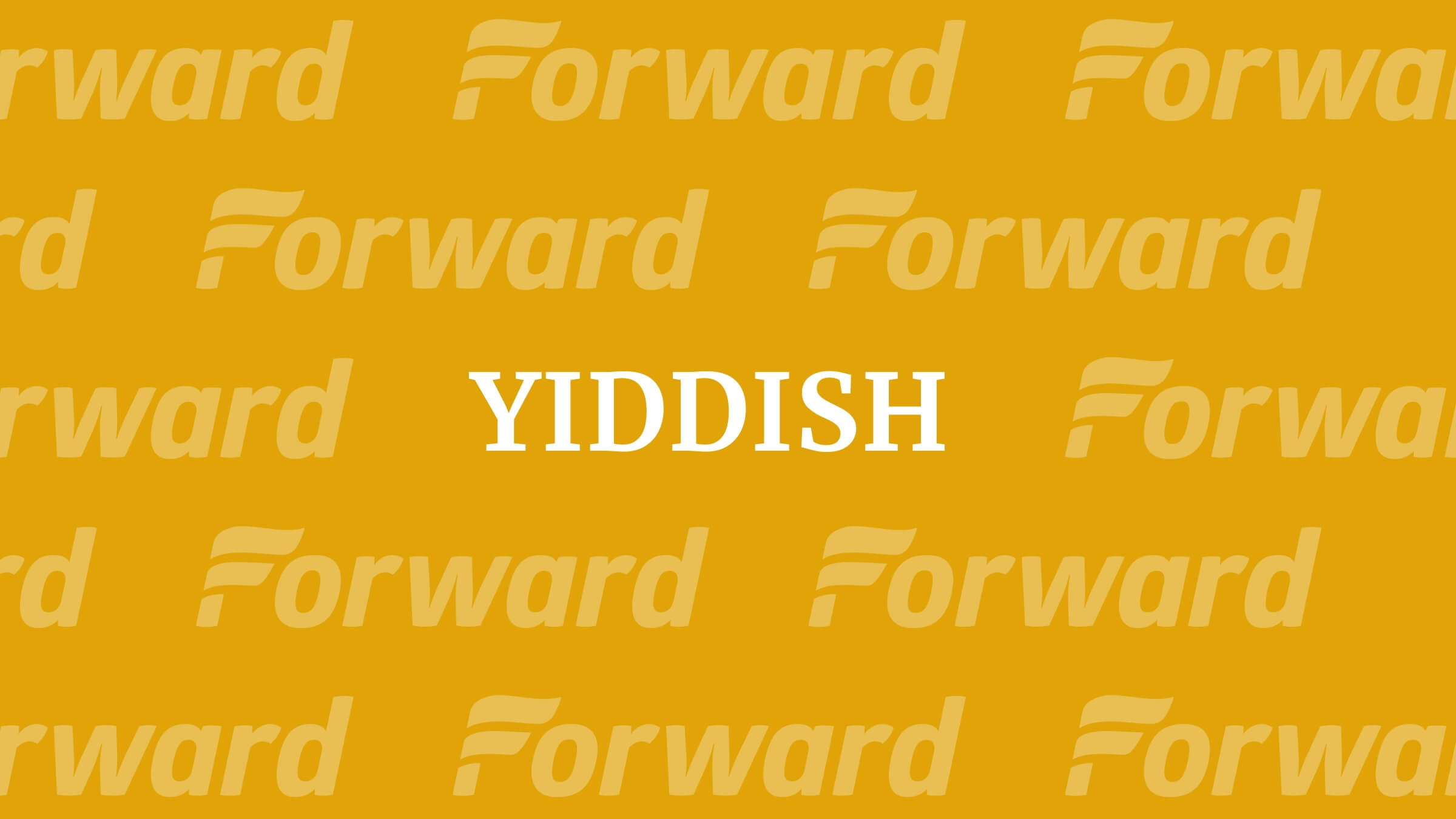מיר עסן אַרבעס און טרינקען ביר לכּבֿוד דעם נײַעם ייִנגעלע (מיט אוידיאָ)Celebrating a baby’s birth with chickpeas and beer (includes audio)
דער שלום־זכר איז אַ שיינע אַשכּנזישע טראַדיציע וואָס איז שוין כּמעט פֿאַרגעסן געוואָרן מחוץ די פֿרומע קרײַזן.

Graphic by Angelie Zaslavsky
די וואָך איז געווען אַ גרויסע שׂימחה בײַ אונדז אין דער משפּחה — ס׳איז צוגעקומען אַ נײַ ייִנגעלע!
פֿרײַטיק־צו־נאַכטס האָט מײַן זון נפֿתּלי מיט מײַן שנור יסכּה געמאַכט אַ שלום־זכר אין שטוב — אַ שיינע אַשכּנזישע טראַדיציע וואָס איז שוין כּמעט פֿאַרגעסן געוואָרן מחוץ די פֿרומע קרײַזן. אויף אַ שלום־זכר פֿאַרזאַמלען זיך משפּחה און פֿרײַנד אין דער שטוב פֿונעם נײַ־געבוירן ייִנגעלע, כּדי צו זינגען, עסן, טרינקען און זיך פֿרייען מיטן קינד אינעם שבת פֿאַרן ברית. דער נאָמען פֿון דער פֿײַערונג — שלום־זכר — מיינט שלום פֿאַרן ייִנגעלע.
לויט די מקורים פֿונעם 16טן און 17טן יאָרהונדערט, האָבן ייִדן זיך געזאָרגט אַז במשך פֿון דער וואָך פֿאַרן ברית קאָנען בייזע רוחות שאַטן דעם ייִנגעלע. דער שלום־זכר, וואָס הייסט אויך די וואַכנאַכט, האָט געזאָלט עס באַשיצן פֿון די שדים אין דער נאַכט ווען זיי וואָלטן זיכער געפּרוּווט קומען — אין דער הייליקער נאַכט פֿון שבת.
דער שלום־זכר האָט אָבער אויך אַן אַנדער זינען. איידער דאָס קינד ווערט געבוירן לערנט עס זיך אויס די גאַנצע תּורה פֿון די מלאכים אָבער ווען עס קומט די צײַט עס זאָל אַרויס אין דער וועלט, גיט דער מלאך עס אַ שנעל אין נעזעלע און דערמיט פֿאַרגעסט עס אַלץ וואָס ס׳האָט זיך געהאַט אויסגעלערנט. דאָס זינגען און די פֿרייד בײַם שלום־זכר דאַרפֿן טרייסטן די נשמה פֿונעם פּיצעלע פֿאַרן האָבן פֿאַרלוירן דאָס גאַנצע תּורה־וויסן.
צוליב דעם וואָס די פֿײַערונג איז פֿאַרבונדן מיט טרייסט, דערלאַנגט מען צום טיש אַרבעס (אויך באַקאַנט ווי נאַהיט) — אַ זאַך וואָס מע גיט אָפֿט צו אָבֿלים, ווײַל די קײַלעכיקע פֿאָרעם דערמאָנט אינעם לעבנס־ציקל. ביר טרינקט מען אויך — מסתּמא ווײַל ס׳איז געמאַכט פֿון גערשטן וואָס זענען אויך קײַלעכיק. און אַוודאי עסט מען לעקעך ווײַל ווי קען מען דען פּראַווען אַ שׂימחה אָן זיסוואַרג?
אוי, שיִער נישט פֿאַרגעסן: כ’דאַרף שוין גיין אַרויסנעמען דעם לעקעך פֿון אויוון…























